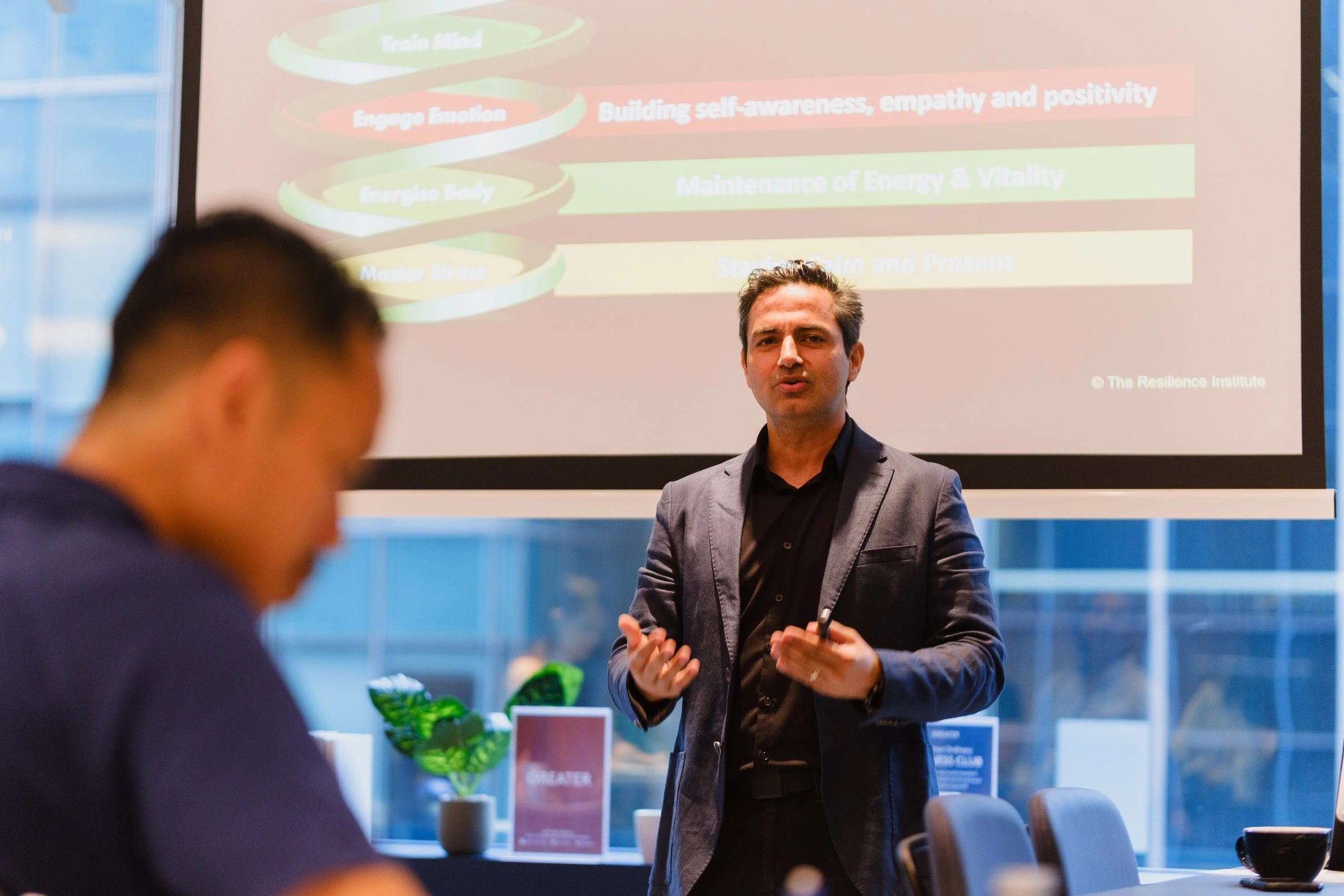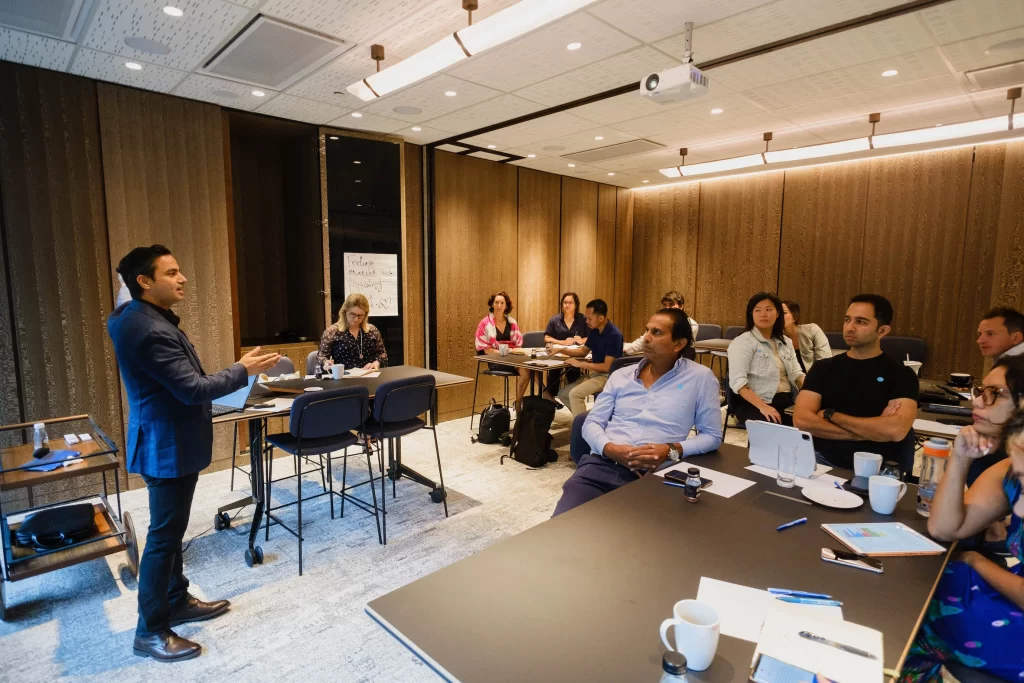Resilience is not a skill that people are born with – rather it is a capability we all can learn. And there are tools that we can use to equip us with what we need to surmount challenges.
Manish Arneja, Managing Partner (SEA) of The Resilience Institute, says our capacity for resilience can be expanded, so we can thrive better under pressure.
But the practice of resilience itself has to be sustainable, he adds.
“In Asia, we coach a lot of leaders, and many of us think that resilience is about working hard and pushing forward. You will win the sprint but three years later, everything will go upside down,” he says.
More importantly, resilience should be thought of as a lifelong practice. Just because we get older, it doesn’t mean that people stop facing challenges and stop learning. “Because pressure is good for our growth and well-being,” he adds.
Arneja delved into the meaning of resilience, and some tips for us to practise being resilient when the going gets tough, at the Personal Resilience Audit, part of the Leadership Development Day, a flagship event series hosted by The Greater Business Club.

Resilience can be incorporated as a daily practice in our lives, says Manish Arneja.
What is resilience and can you measure it?
The Resilience Institute defines resilience as “the ability to bounce back after coming face-to-face with a challenging situation without letting misfortune affect your chances of future happiness or success”.
According to the Institute, resilience is also when people face “a challenging period of their lives with the confidence things will get better”. However, the Institute also notes that resilient people, while still shaken by challenging events, are likely to change direction and embark on a different, more positive way of doing things.
The Resilience Institute also assesses individuals through its Resilience Diagnostic Assessment, a 10-minute questionnaire that ascertains what your key strengths and weaknesses are, and suggests recommendations to each individual on the areas they need to improve on.
How do you know you are low on resilience?
The assessment scores reveal many insights into a person’s psyche. For instance, the results may skew towards a high level of cognitive confusion, a state of mental exhaustion that many corporate employees experience. It all boils down to overstimulation from “hundreds of things to do”, says Arneja.
But what doesn’t lie is the body’s symptoms of burnout.
“The mind can fail first, but for the body to fail is when something is going absolutely wrong. This is when distress starts to happen – you wake up and your heart rate is already high. You want to sleep but you can’t go to bed because your mind is constantly thinking,” says Arneja.

The importance of self-care in the practice of resilience
Arneja highlights how taking care of one’s mental health is a vital part of building resilience. Negative dialogue, such as self-criticism, sets the precedence for a not-so-great day ahead.
Another aspect of neglecting mental health is overload, which Arneja says is common for those juggling multiple duties at once. “If there are things that are not essential, take them off,’ he says.
Setting your mobile devices on airplane mode goes a long way into safeguarding your mind from unnecessary information and external chatter, too.
In essence, boosting resilience is an intentional practice – it means making a commitment each day to ensure your headspace is in its finest shape.
There are a few ways you can do this, says Arneja.
- Simple breathing exercises
Whenever we feel highly stressed, our body kicks into high gear, preparing ourselves to run from a perceived threat. Our sympathetic nervous system triggers this response. On the flip side, our parasympathetic nervous system grounds us, bringing us back into a relaxation frame of mind. It also regulates our digestive system, so it comes as no surprise that gastric ailments have been linked to high stress.
One way to boost our parasympathetic response is through mindful exercises. Simple breathing exercises can achieve this, says Arneja. Square breathing is an example – breathing through your nostrils slowly with your eyes closed, to the count of four for each inhale and exhale, helps calm your nerves and refocus your mind.
- Physical exercise and adequate sleep
There’s nothing like some physical movement to get out of your head. It could be a short hike, or a regular yoga practice, or your favourite high intensity class. “Your energy will start to flow and it will take you into the right momentum,” he says. For Arneja, it’s five minutes of stretching every morning.
Sufficient sleep is also essential to mental resilience – with work, family and personal activities occupying our lives, many of us don’t get enough sleep. Arneja recommends power naps, especially for those working from home. A 15-minute power nap can increase your performance and boost your deep sleep cycle, he says.
- Reframing challenging periods
It helps tremendously to focus on the positive aspects of a challenging situation. But to start, we should build awareness on how we are feeling and to practice agency over our emotions, rather than “waiting for others to tell us how to feel”.
“Before you go to a meeting, check how am I feeling – do I feel joyful, productive, or not so productive? The more you notice, the more you’re creating the network of awareness in your body,” says Arneja.
Another way to reframe negative situations is to ask yourself what went well. Focus on the positive parts of your day and create a positive emotional space. That way, one can see their daily life through goodness and gratitude.
- Staying present
Harvard University wrote that people focus on what they are doing only 47 percent of their waking hours, with their minds wandering elsewhere for the remaining 53 percent. Staying connected to and finding joy in the present, is key to training your mind for resilience.
“Remember a time when you’re fully enjoying something – you are playing a tennis game or cooking. How many of you notice that there isn’t drama going on?” says Arneja.
- Spirit in action
Having a connection to something meaningful that also grounds you can make a huge difference in your life. It could be your relationship with your friends, or your spouse, or the grand purpose in your work. “Life becomes more joyful when you’re working beyond yourself, but for the gift that you’re here in this world,” says Arneja.
The Greater Business Club enables leaders to thrive in the most challenging situations. Email us to find out more about our leadership-themed events at talktous@thegreater.co.
